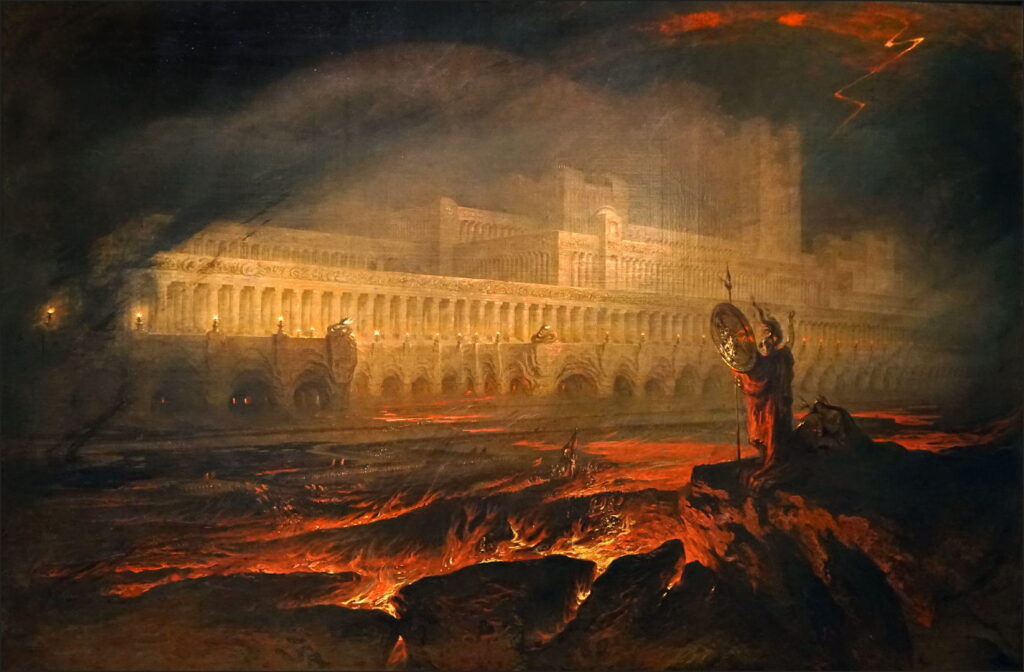Note: If you wish to receive, via e-mail, (1) my weekly newsletter or (2) daily copies of these posts, notify me at [email protected] and indicate which you would like. I promise not to share your e-mail address with anyone. To unsubscribe, send me a follow-up email.
Friday
“Over 170 million people are under heat alerts from California to Maine,” read a headline in yesterday’s Washington Post, and the news in the rest of the world is just as bad, making descriptions of Milton’s hell all too relevant. It’s as though we are the fallen angels in Paradise Lost, trying to figure out what to do next now that we find ourselves attached with “adamantine chains” to “penal fire.”
One of the proposals sounds, unfortunately, like what climate denialists advocate—which is, to do nothing and hope things get better. Belial, Milton tells us, counsels “ignoble ease and peaceful sloth,” which is about par for today’s Republican Party:
This is now
Our doom; which if we can sustain and bear,
Our Supreme Foe in time may much remit
His anger, and perhaps thus far removed
Not mind us not offending, satisfied
With what is punished…
Or maybe, Belial adds, we can just accustom ourselves to the “new normal” (my words, not his). Simply by our enduring rising temperatures and conforming to the changed circumstances,
Familiar [will become] the fierce heat, and void of pain;
This horror will grow mild, this darkness light…
Belial, at least, acknowledges that the suffering they are undergoing has been brought about by their own actions. That’s a step further than our climate denialists are willing to go.
Or perhaps they are taking comfort in another poem about extreme weather events. Once we’re all dead, as Shakespeare points out in Cymbeline, heat and cold will no longer be a problem for us:
Fear no more the heat o’ the sun;
Nor the furious winter’s rages,
Thou thy worldly task hast done,
Home art gone, and ta’en thy wages;
Golden lads and girls all must,
As chimney sweepers come to dust.
Responsibility is called for, however, for those of us who believe we should take care of the earth we have been given. As the angel Raphael points out to Adam in book seven, God’s purpose in creating this heavenly garden has been to provide those humans with the chance to dwell “holy and just” as they “rule over his works, on earth, in sea, or air.” Our job, Adam later tells Eve, is to figure how “best to fulfill the work which here God hath assigned us.”
Returning again to Raphael, he reassures Adam that humans will be “thrice happy…if they know their happiness, and persevere upright.”
Persevering upright remains a challenge.
